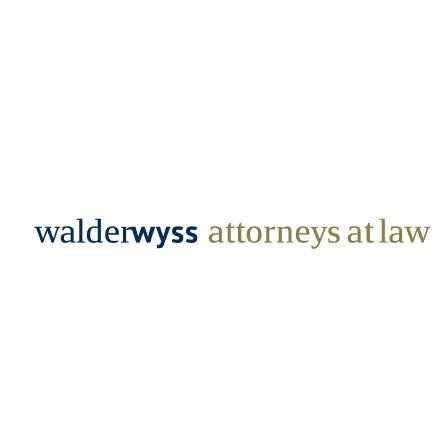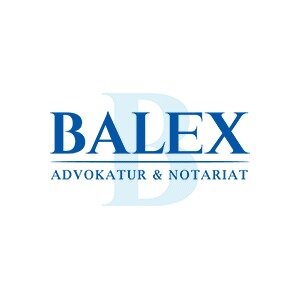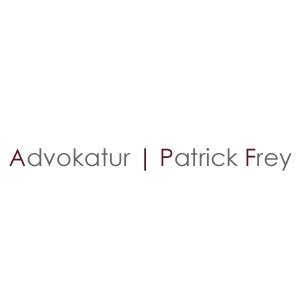Best Art & Cultural Property Law Lawyers in Basel
Share your needs with us, get contacted by law firms.
Free. Takes 2 min.
List of the best lawyers in Basel, Switzerland
About Art & Cultural Property Law in Basel, Switzerland
Art & Cultural Property Law in Basel, Switzerland is a specialized legal field that addresses issues related to the ownership, sale, transfer, and protection of art pieces and cultural heritage. Basel, renowned for its vibrant art scene which includes the world-famous Art Basel fair, plays a pivotal role in the international art market. As such, the laws in Basel ensure the protection of cultural property, compliance with international standards, and the regulation of art transactions. These laws are designed to prevent theft, illegal export, and the loss of culturally significant items.
Why You May Need a Lawyer
There are several situations where individuals or organizations may require legal assistance in the field of Art & Cultural Property Law:
- Art Transactions: Buying or selling artworks, particularly those of significant value or provenance.
- Provenance Issues: Establishing the history of ownership for a piece of art, especially if it has been stolen or looted in the past.
- Copyright and Reproduction: Handling intellectual property rights related to the reproduction and use of artwork.
- Import/Export Regulations: Navigating the legal requirements for shipping or importing artworks in compliance with local and international laws.
- Restitution Claims: Seeking the return of cultural property that may have been unlawfully acquired or exported.
- Museum Acquisitions: Ensuring that acquisitions by museums comply with legal and ethical standards.
Local Laws Overview
Several key aspects of local laws are particularly relevant to Art & Cultural Property Law in Basel:
- Cultural Property Transfer Act (CPTA): This national legislation provides a framework for the regulation of art imports and exports as well as combating the illicit transfer of cultural property.
- Swiss Federal Act on Copyright and Related Rights: Offers protection for creators’ rights over their works, which is crucial when dealing with artworks.
- International Conventions: Switzerland is a party to various international agreements, such as the UNESCO 1970 Convention, which governs the prevention of illegal cultural property transactions.
- Cantonal Regulations: Basel may have additional cantonal rules addressing art and cultural property unique to its jurisdiction.
Frequently Asked Questions
What is the Cultural Property Transfer Act (CPTA)?
The Cultural Property Transfer Act regulates the handling, import, export, and trade of cultural property in Switzerland to prevent illegal trade and to protect cultural heritage.
Can I legally export a painting purchased in Basel?
Exporting art from Basel involves compliance with both Swiss national laws and international regulations. Legal advice is recommended to ensure that all conditions are met.
How do I determine the provenance of a piece of art?
Determining provenance involves tracing the ownership history, which may require access to sales records, purchase documents, and potentially the expertise of a legal professional specializing in art law.
What should I do if I suspect a piece of art is stolen or looted?
If you suspect an artwork is stolen, you should immediately stop any transaction and consult with a legal professional as well as contact relevant authorities.
Are there special laws for exhibiting artworks in Basel?
Yes, when exhibiting artworks in Basel, either privately or in a gallery, you must adhere to local and national regulations concerning copyright, display rights, and possibly insurance requirements.
What rights do artists have in Basel regarding their creations?
Artists in Basel are protected under the Swiss Federal Act on Copyright and Related Rights, which ensures they retain rights over the reproduction and distribution of their creations.
How are disputes over art ownership resolved?
Disputes can be resolved through mediation, arbitration, or litigation, depending on the circumstances. Legal representation is crucial in navigating these options.
Can a museum acquire art that doesn't have clear provenance?
Museums are generally advised to exercise due diligence in establishing provenance before acquisition to avoid legal issues and respect ethical standards.
What are the legal implications of art donations in Basel?
Donations may involve tax implications and legal agreements outlining the conditions of the donation. It is advised to consult a lawyer with expertise in art law for such transactions.
How can I verify the legal compliance of an art gallery in Basel?
To verify a gallery’s compliance, it's important to review its licensing, adherence to Swiss art laws, and possibly consult with a legal expert to ensure all conditions are met.
Additional Resources
For further information and assistance, consider reaching out to the following resources:
- Swiss Art Law Foundation: Provides research and publications on art and cultural property law.
- Cultural Property Office: Swiss governmental body overseeing the protection of cultural heritage.
- Federal Office of Culture: Offers guidelines and information on Switzerland's cultural policies.
- Basel Bar Association: Can assist in finding qualified local legal practitioners specializing in art law.
Next Steps
If you require legal assistance in Art & Cultural Property Law, consider the following steps:
- Identify the specific nature of your legal issue or question.
- Contact local legal experts with experience in art law, possibly through the Basel Bar Association.
- Gather all relevant documentation pertinent to your case, such as provenance papers, transaction records, and any correspondence.
- Consider consulting more than one legal professional to compare advice and ensure you have a comprehensive understanding of your options.
- Engage a lawyer who can guide you through resolving your issue in compliance with Swiss law and international standards.
Lawzana helps you find the best lawyers and law firms in Basel through a curated and pre-screened list of qualified legal professionals. Our platform offers rankings and detailed profiles of attorneys and law firms, allowing you to compare based on practice areas, including Art & Cultural Property Law, experience, and client feedback.
Each profile includes a description of the firm's areas of practice, client reviews, team members and partners, year of establishment, spoken languages, office locations, contact information, social media presence, and any published articles or resources. Most firms on our platform speak English and are experienced in both local and international legal matters.
Get a quote from top-rated law firms in Basel, Switzerland — quickly, securely, and without unnecessary hassle.
Disclaimer:
The information provided on this page is for general informational purposes only and does not constitute legal advice. While we strive to ensure the accuracy and relevance of the content, legal information may change over time, and interpretations of the law can vary. You should always consult with a qualified legal professional for advice specific to your situation.
We disclaim all liability for actions taken or not taken based on the content of this page. If you believe any information is incorrect or outdated, please contact us, and we will review and update it where appropriate.












